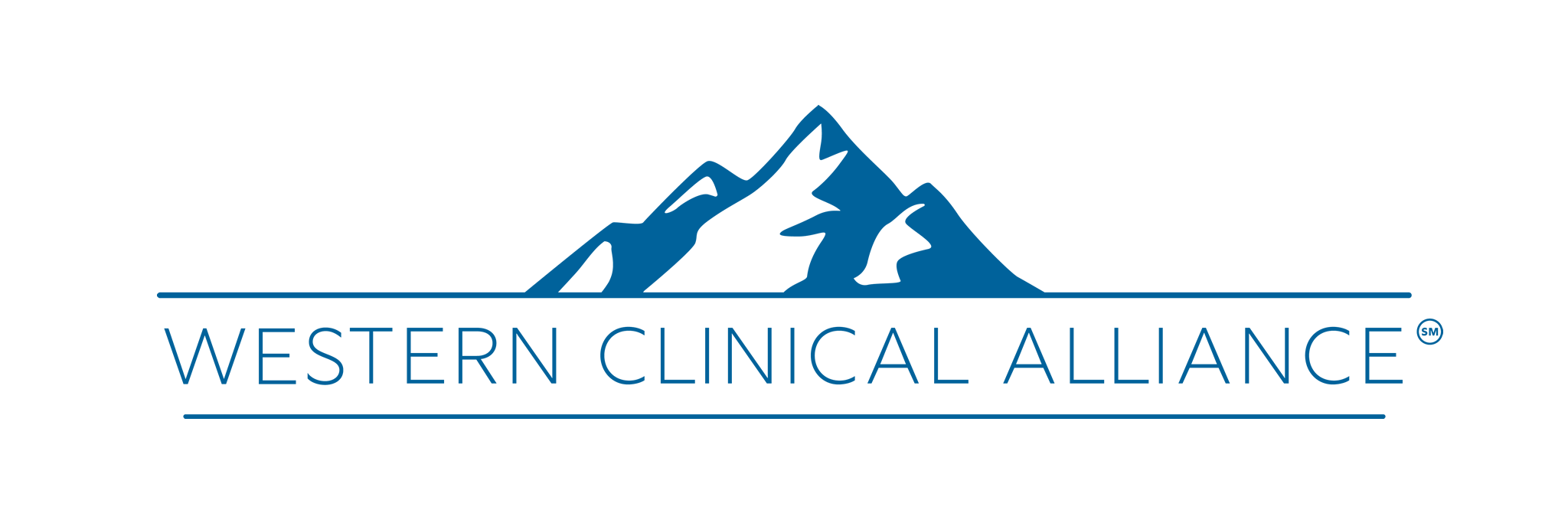FAQ
Q: What is the Western Clinical Alliance?
A: The Western Clinical Alliance℠ is a Clinically Integrated Network (CIN) which joins together health system employed and private practice physicians, across our community and in collaboration with Renown Health and other care providers, into a single comprehensive care delivery network, with a shared, common set of goals focused on increasing value by improving outcomes and better managing the total cost of care for patients.
Q: What are the goals of the Western Clinical Alliance?
A: Our goals are as follows:
- Work well together – creating seamless clinical experiences for patients that transcend location or entity means physicians will lead, and have access to clinical information to improve care and reduce costs.
- Have a common vision of success – managing the health of our community with a focus on the patient, and their unique health and care needs.
- Strive for Excellence – Western Clinical Alliance℠ aspires to have physicians who are committed to value and continuously improving all aspects of the care and service they provide to our community.
Q: How is a Clinically Integrated Network (CIN) different than an insurance company?
A: While many of the administrative functions within a CIN are similar to those in an insurance company, there are several key differences. Being clinically integrated means that physicians and care providers share clinical data, they review that data together and work to improve outcomes. Sharing clinical data and patients’ records enables enhanced clinical decision making that encompasses the patient’s full story. Additionally, setting protocols and clinical guidance happens within the governance of the Western Clinical Alliance℠ which is physician-led. That means that physicians who are a part of the Western Clinical Alliance℠ are also a part of setting the accountability for the CIN to improve outcomes, provide outstanding experiences, and lower costs.
Q: Is the Western Clinical Alliance a replacement for the ACO?
A: No. While the goals are aligned, the ACO is specific to people covered by Medicare.
Q: Can a practice/provider contract with both the Western Clinical Alliance and the ACO?
A: Yes.
Q: Are there physicians on the Board? If so, who are the physicians?
A: The vast majority of board members will be physicians The board has not been finalized but will include individuals from Renown Medical group, with an emphasis on Primary Care, as well as strong representation from community physicians who are in specialties that represent large areas of spend within the populations for which we are at risk.
Q: Who can join the Western Clinical Alliance?
A: Qualified providers who are aligned with this vision are invited to participate. The Western Clinical Alliance℠ fosters and supports collaboration among providers to achieve the IHI Triple Aim. Western Clinical Alliance℠ is powered by Renown Health.
Q: What will members do?
A: Members collaborate in improving the quality, safety, efficiency and sustainability of health care in our community by joining with a broad spectrum of health system employed and private-practice physicians who are committed to work together to direct, design and govern the the Western Clinical Alliance℠. The physician-led team works to develop new care models, apply best practices, monitor and share performance with a focus on improving health while honoring patient preferences. Data is shared freely. Quality goals are shared, aligned and consistent across the system.
Q: May I maintain the autonomy of my practice?
A: Yes. Physicians and practices maintain their private status and operational autonomy while sharing in the resources and benefits of the CIN capabilities including; improved coordination among practices, transparency in data sharing, goal setting, and collaborative clinical process design and decision making. In addition, this group has access to value-added services offerings such as Electronic Medical Record and group purchasing.
Q: What is the anticipated beneficiary enrollment for the Western Clinical Alliance?
A: Our goal is to take to market a value proposition that will be attractive to payers covering the vast majority of lives in the communities we serve. The first population that will be accessing care through Western Clinical Alliance, are populations covered through Hometown Health. They include both commercial and Medicare advantage populations.
Q: Will there be exclusivity by specialty?
A: Participation criteria will be established by the governance of the CIN and is a bedrock of the safe harbors established by developing a Clinically Integrated Network. Participation will be based on criteria.
Q: How do I join? Where can I learn more?
A: If you are a physician interested in learning more about Western Clinical Alliance℠, please feel free to reach out to Melissa Panks – Director of Network Performance at Renown Health, melissa.panks@renown.org
Q: What is the term of the contract?
A: The term is one year with automatic renewals for one-year terms. Notice can be given 120 days prior to the end of the then current term. This allows participants to evaluate each year’s participation.
Q: The Participating Provider Agreement indicates that performance standards, protocols, and policies may be established and that physicians will need to adhere. Are these established yet, and how will I know when they are and what is required?
A: The Value Performance and Contract Performance committees have been charged with developing these types of standards. These committees have been meeting on a regular basis and working diligently toward policies and measures that will help us reach our collective goals. Many of these measures will be defined by the value based contracts in which the alliance engages. One of the goals of the contract performance committee is to align measures across various value based contracts to ensure ease of administration and adoption by the network. As they are developed all standards will be available to participating providers. Proactive communication out to the network will occur to ensure transparency and understanding of intent of polices is shared. The opportunity exists for groups to have members sit on committees and support the development of these programs as the CIN matures.
Q: What data sharing will occur?
A: The following will occur:
- Epic Care Link will be available to all members
- Western Clinical Alliance will receive claims data from payer partners and will support tools to share claims-based insights back to WCA members.
- Members are asked to support two-way sharing with the HIE
- Members of Western Clinical Alliance will share unadjudicated claims data to help support care gap closure and population health initiatives
- Members whose EMR supports interoperability will be asked to use that functionality for clinical data sharing.
Q: What are Western Clinical Alliance’s performance standards for participants?
A: Standards are being developed on the basis of Quality, Access, Service, and Cost. WCA will utilize industry standards like HEIDIS and other CMS value based purchasing measures where available. There will also be engagement criteria like data sharing, and participation of groups in joint operating committees or other sub-groups, and in process improvement efforts.
Q: Why are you asking for unadjudicated claims data?
A: This data will serve to share utilization information to all participants in the network. It will be used to facilitate care gap closure for things like annual wellness visits, referrals to specialists, and more real-time insights in to care pathways.
Q: What data can Western Clinical Alliance share with our group?
A: We can share the following:
- The CIN utilizes claims to populate a database called PMPM Analyzer. Within this tool CIN members can review trended information regarding utilization, cost, and disease-specific care. There is an ability to look at data from a provider-specific, specialty roll-up, or total population perspective.
- We also have stood up numbers of tools through Health Catalyst that enables us to pull specific data related to variations in care, disease-specific pathways and supply/implant utilization.
- We have monthly provider compare data that is a claims-based data set that shows the performance of a provider compared to their specialty average as well as groups compared to their specialty average. The domains included in this data are readmissions, total cost of care, pharmacy, PCP utilization, high-cost imaging utilization and hospital utilization.
- As we continue our journey, we will continue to work with our Business Intelligence team to leverage self-serve tools through Health Catalyst, and will explore ways we can make data that are even more actionable available to all members of the CIN.
Q: Is the participant agreement exclusive? Why?
A: Exclusivity is dependent on your practice.
- For primary care participants, this agreement is exclusive as it related to participation in other clinically integrated networks. This is because attribution of populations is typically based on primary care empanelment.
- Specialty providers have the option to be exclusive to the Western Clinical Alliance. This selection enables them full participation in shared savings. If they participate on a non-exclusive basis they can participate in shared savings at a reduced percentage.
- The structure of a CIN enables providers to work collectively towards delivering outcomes across the domains of quality, service and efficiency. It is the Western Clinical Alliance’s goal to achieve exceptional outcomes for our patients that will ultimately lower the cost curve and enable continued autonomy, support and growth of local healthcare resources. These efforts take dedicated focus from network providers, but will drive outcomes and results that will reward providers and patients alike.
- Members of the CIN still have the ability to participate in any fee-for-service arrangements with payers as they deem appropriate.
Q: The agreement says that Western Clinical Alliance (WCA) will be available to negotiate payer contracts on my behalf. Does this mean that I am delegating all contracting to WCA?
A: No, this portion of the participant agreement allows WCA to negotiate value-based contracts on behalf of the network. The contracts for 2021 will not alter your group’s existing contracts and rates. Clinically integrated networks are designed to enable contracting at the network level. As Western Clinical Alliance matures and develops capabilities, there may be opportunities for broader contracting services. That decision, however, will be made by the Board of Governors and shared with network participants in advance and in a way where participants my opt-in.
Q: What other value-added service will my group gain from participation?
A: Your group will gain the following value-added services:
- Group purchasing opportunities for things like medical malpractice insurance, supplies, etc
- Care coordination and medical management to help relieve the excessive resource demand of high-complexity patients
- An administrative collaborative designed to eliminate waste and reduce burden
- Joint marketing

